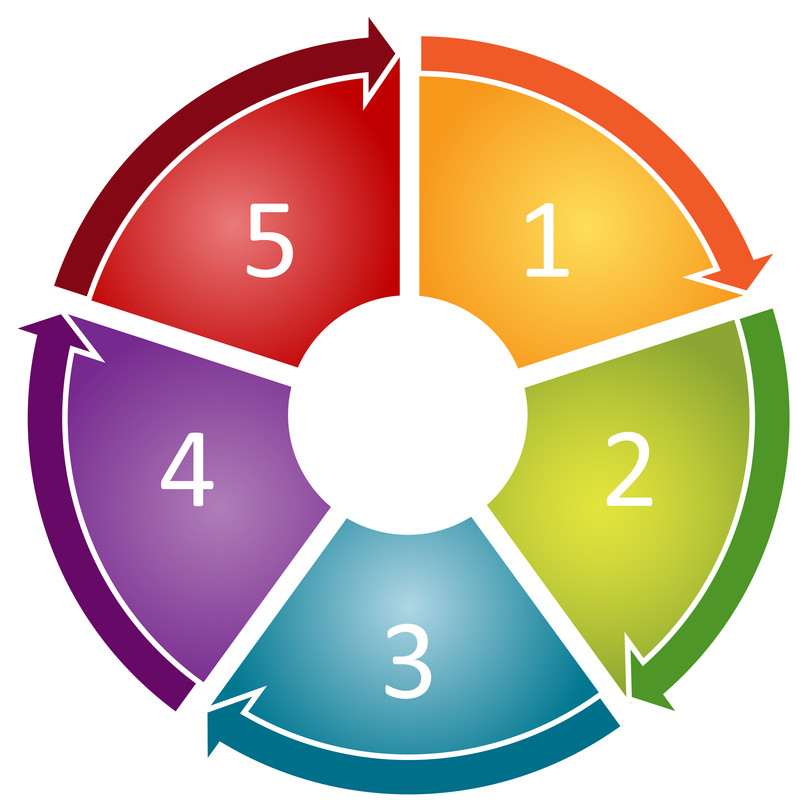 Network Marketing Presentations Using the 5 Question Process
Network Marketing Presentations Using the 5 Question Process
When preparing or delivering network marketing presentations, preparing literature, or just structuring a one-on-one conversation, it is beneficial to have a “system” to draw upon to ensure that you get to the point with information that is useful to the prospect or audience, and easy to remember for you.
Years of experience have proven there are five (5) key questions that most people have in their minds, whether they actually state them as such or not. Those questions form the basis for creating presentations, literature, speeches, and dialog with your network marketing audience or prospect. Those five questions are:
- What is it?
- What does it do?
- How does it work?
- Why do I need it?
- How much does it cost?
Don’t interpret these questions in a strictly literal sense, and understand that the order of the questions is important only to the extent that it makes sense for the information you are delivering, and the audience to which you are presenting that information. In some cases you will have to extrapolate just a bit to make your product, service, or offer fit within the framework, but in just about every case that can be done.
The single most important of the five questions is “Why do I need it?” We’ll go into the mechanics and purpose of reach of the questions.

What Is It?
Generally, the “what is it?” question is the category, class, or name of the product, service, or offer. In network marketing it could be a food replacement shake, an energy drink, a travel club, or cosmetics. Consider for example, a vacuum cleaner.
In describing the “what is it?” information it is important to be as simple and clear as possible. If the product or service has a name that doesn’t really tell what the product or service is, then you will need to revert to the common or layman description. For example, “it’s a Dyson” doesn’t mean anything to some people. They don’t know that it’s a vacuum cleaner, unless they have already been introduced to what a Dyson is.
Stay away from jargon or trade terms unless you’re specifically dealing with people who embrace that kind of description. You want the prospect or audience to know what it is from your description.
What Does It Do?
This is the function the produce or service performs. There are thousands of network marketing distributed products, so we’ll just stick to the vacuum cleaner. In our vacuum cleaner example it would be: It removes dust and debris from your floors. Yes, keep it simple. If they have to think to hard to understand what it does, it’s game over. You must simplify and summarize what “it” does so there is an immediate understanding and comprehension of the function the think performs.
How Does It Work?
This question is the one that can get some people into a lot of trouble! Why? Too much detail! When explaining “how does it work?” you focus on the coarsest explanation that will suffice for your audience. This is also the category where you will describe the key points of differentiation that your product has over others. Again, thought, don’t get into too much detail unless the audience warrants it.
If, for example, you happen to be in a health and wellness network marketing company, you generally don’t want to go into the molecular transport phenomena that allow nutrients to penetrate the cell walls: that would cause 99.99 percent of your prospects to check out on you. You would instead want to say something like: it is an optimized blend of nutrients designed to work as a system within your body.
Going back to our vacuum cleaner example: The vacuum cleaner has a rotating brush that sweeps the floor and beats the carpet to loosen debris. The dust and debris are sucked into a container by a powerful electric suction fan.
Now, in formulating the “How Does It Work?” question you should also be thinking of how it fits with the “Why Do I (They) Need It?” question. The reason is twofold: 1. You want to set the “why they need it” question up for success; 2. You want to make sure you don’t mix up the information into the wrong category. For example, that a vacuum cleaner sucks dust and debris into a container is a “how does it work” item. The “why do they need it” question is: you no longer have to use a broom and dustpan, and keep going back and forth to a garbage can to dump the dirt.
Why Do I Need It?
This is the most important question of the five question system. The reason is that it is in this question that you link your product or service with the prospect’s needs. It is in this question where you lay the value on the table. Since network marketing is a value-based business, make sure you focus on this question. Answering this question for your target market and target audience will save you a lot of frustration by making sure that you have alignment and synergy with what it is that your market or audience seeks in the way of value or solutions.
Using the vacuum cleaner example again: This vacuum cleaner will save you time by cleaning your floors faster. It will save you money by reducing wear from dirt that is not removed effectively. This machine will also make sure that you are ready for those surprise visits from friends and family, and so forth.
When presenting the “why do I need it” question, prioritize the value delivered from the highest, most desirable to the lowers. Start with those elements of the product or service that solve the biggest, most pervasive problem the prospect or audience faces. From there you can move into the lesser important or collateral values of the product or service.
Network marketing is about delivering value to the individual, so assess carefully the value your network marketing products or services deliver, and emphasize those. Avoid the “me too” elements unless they compliment or support your stronger elements.
How Much Does It Cost?
Wherever possible this should be the last question that is addressed. The prospect or audience needs to have the value in their mind before they can assign a price they are willing to pay. When they understand what it is, what it does, how it works, and why they need it, the cost question becomes secondary to receiving the value of the thing.
You should do your research to make sure you know what competing products or services cost, and what their value proposition is. There are two good reasons for this: 1. You don’t want to get blindsided by having your product priced so high so as to erase any expectation of value; 2. You don’t want your product priced too low, either – low priced products are sometimes perceived as being of low value.
In network marketing there are often programs where the price is reduced or eliminated based on certain criteria, so you want to make sure and provide enough detail for the prospect or audience to understand what the ultimate cost can be under the most desirable and attainable conditions. Never quote a price or cost based on unattainable criteria.
Finally, network marketing products and services are commonly more expensive than equivalent retail or discount products. In most cases the network marketing products are better because the network marketing business model promotes more efficient and effective use of capital for product or service development. This is also a very important reason you need to lead with the “Why Do I Need It?” before ever talking cost or price.
Summary
You can apply this 5 question process to virtually anything in network marketing: products (goods and services), compensation plans, company overview, opportunity, and on and on. It becomes a framework for your thinking and organizing. If you master this process by practicing it each day, you will find that you can maximize your personal effectiveness in any situation, whether one-on-one or a large audience.
These 5 questions will make you a master marketer, highly effective network marketing professional, and a powerful leader and example for your team.
If you found value in this information, please like and share!
Here’s to fun, profit, and lifestyle in your network marketing business!
All the best,


